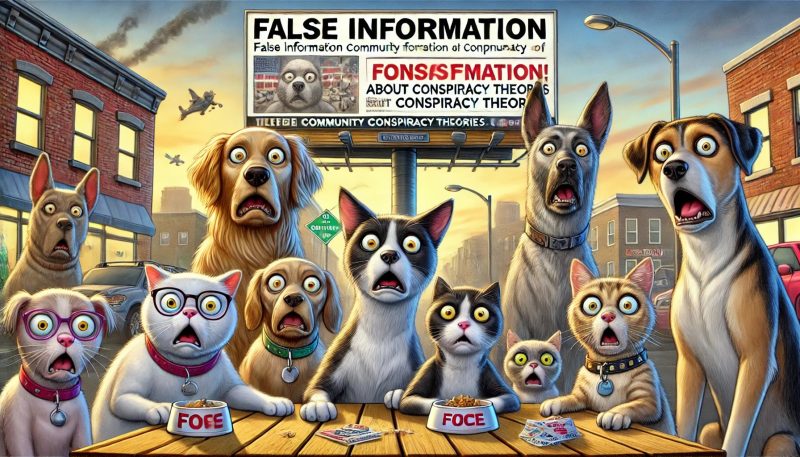
A disturbing conspiracy theory claiming that Haitian immigrants are eating cats and dogs in the U.S. is circulating among right-wing groups, putting communities and individuals at risk.
This baseless narrative has been amplified by political figures like Donald Trump and J.D. Vance, despite being thoroughly debunked by local authorities and fact-checkers.
The Origin of the Conspiracy
The rumors began in Springfield, Ohio, when a Facebook post alleged that Haitian immigrants were stealing and eating pets. The post, however, relied on a fourth-hand account—claiming a neighbor’s daughter’s friend witnessed such an event—and provided no direct evidence. Springfield authorities have confirmed that they have received no reports of such incidents, and police have not documented any cases of pet abductions or consumption by migrants.
The conspiracy has since spiraled into a broader, racially charged myth that plays into longstanding xenophobic stereotypes. Trump and Vance’s repeated references to the false claim during campaign speeches have fueled the narrative, pushing it further into the right-wing media ecosystem, where it’s been embraced by MAGA influencers and social media accounts dedicated to spreading anti-immigrant sentiments.
The Real-World Impact
These baseless allegations are not just internet fodder—they have had tangible and dangerous consequences. In Springfield, the false claims have sparked bomb threats, school closures, and heightened community tensions. Local Haitian American residents have reported feeling targeted and unsafe, as the narrative has painted them as criminals in the eyes of some neighbors.
The fallout has reached beyond Springfield, affecting Haitian communities in other parts of the country. In New York, Republican Rep. Marc Molinaro spread the pet-eating rumors on social media, despite having no credible evidence. His opponent and other community leaders have condemned the rhetoric, highlighting the harm such unfounded claims cause to immigrant communities. In these districts, where Haitian Americans make up a significant part of the population, residents are grappling with an increase in hostile attitudes fueled by these racist myths.
Why the Claims Are False
PolitiFact and other fact-checking organizations have thoroughly investigated the rumors and found no substantiated evidence to support the claims. Springfield police have reiterated that no reports of pets being stolen and eaten have been filed. The city’s spokesperson confirmed that the viral social media post that launched the conspiracy did not cite any verified incidents. Photos and videos circulating as “proof” were found to be unrelated to the claims or taken from other contexts entirely.
Additionally, there is no historical or cultural precedent in Haitian cuisine for eating cats or dogs, making the accusations not only factually incorrect but also deeply misleading and harmful. The spread of such misinformation highlights how easily fear and prejudice can be manipulated, especially in politically charged environments.
The Dangerous Role of Political Figures
Figures like Trump and Vance have exploited these baseless rumors to stoke anti-immigrant sentiments among their base, framing the false narrative as part of a broader immigration crisis. Despite numerous calls from within their own party to stop amplifying these falsehoods, both politicians continue to leverage the conspiracy in their rhetoric, often tying it to discussions about border security and crime.
This is not just another fringe internet rumor—it is a deliberate disinformation campaign that preys on racist stereotypes and sows division. By legitimizing these unfounded claims, political leaders are directly contributing to an environment where immigrant communities are increasingly seen as threats, rather than as people seeking better lives.
Conclusion
The baseless conspiracy that Haitian immigrants are eating pets is not only false but dangerous. It has real consequences, from increased hostility toward Haitian communities to disruptions in local areas like Springfield. Spreading such misinformation does more than just muddy the truth; it puts lives and communities at risk. It’s a stark reminder of the destructive power of disinformation and the responsibility we all bear to challenge falsehoods when they arise.
